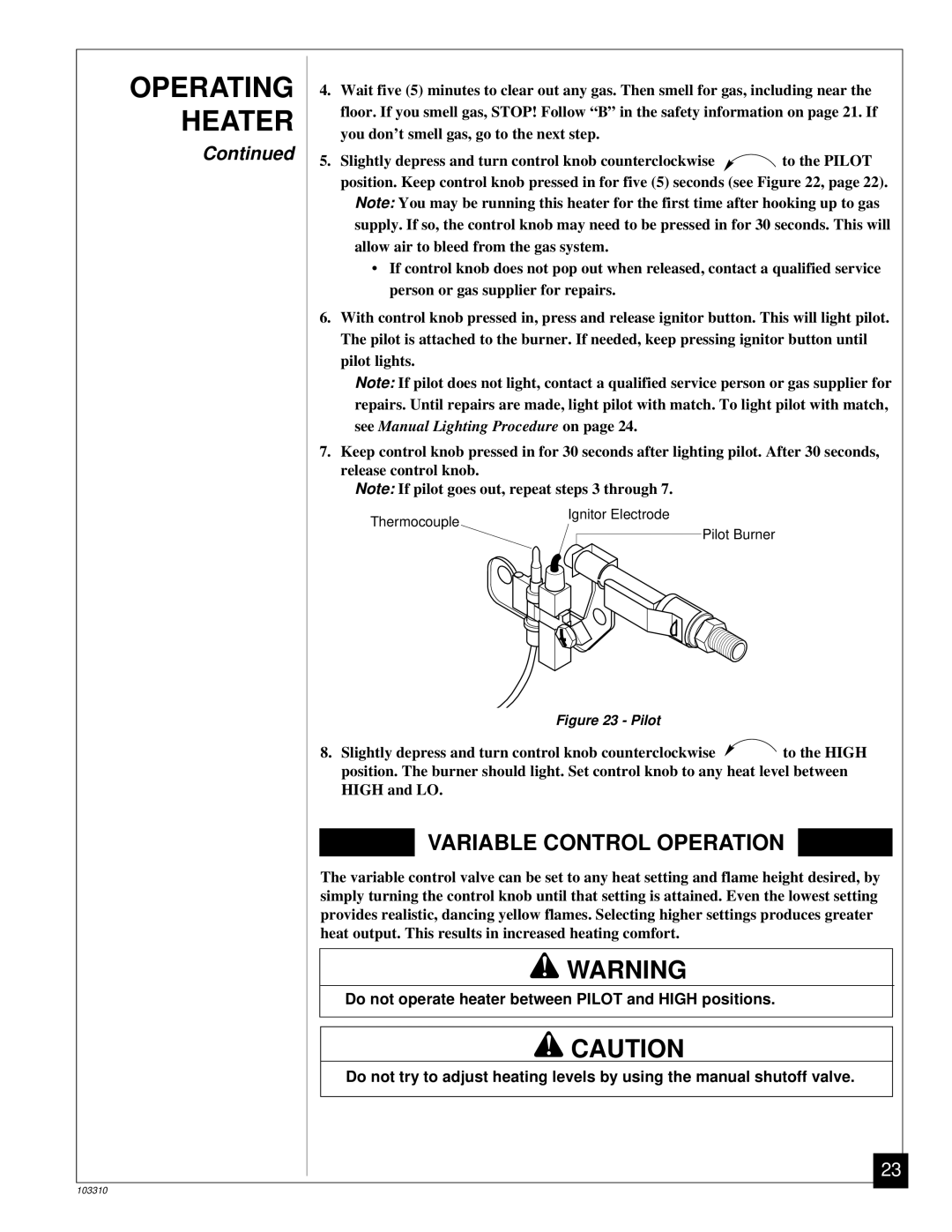
OPERATING HEATER
Continued
4.Wait five (5) minutes to clear out any gas. Then smell for gas, including near the floor. If you smell gas, STOP! Follow “B” in the safety information on page 21. If you don’t smell gas, go to the next step.
5. Slightly depress and turn control knob counterclockwise ![]() to the PILOT position. Keep control knob pressed in for five (5) seconds (see Figure 22, page 22).
to the PILOT position. Keep control knob pressed in for five (5) seconds (see Figure 22, page 22).
Note: You may be running this heater for the first time after hooking up to gas supply. If so, the control knob may need to be pressed in for 30 seconds. This will allow air to bleed from the gas system.
•If control knob does not pop out when released, contact a qualified service person or gas supplier for repairs.
6.With control knob pressed in, press and release ignitor button. This will light pilot. The pilot is attached to the burner. If needed, keep pressing ignitor button until pilot lights.
Note: If pilot does not light, contact a qualified service person or gas supplier for repairs. Until repairs are made, light pilot with match. To light pilot with match, see Manual Lighting Procedure on page 24.
7.Keep control knob pressed in for 30 seconds after lighting pilot. After 30 seconds, release control knob.
Note: If pilot goes out, repeat steps 3 through 7.
Thermocouple
Ignitor Electrode
Pilot Burner
Figure 23 - Pilot
8. Slightly depress and turn control knob counterclockwise ![]() to the HIGH position. The burner should light. Set control knob to any heat level between HIGH and LO.
to the HIGH position. The burner should light. Set control knob to any heat level between HIGH and LO.
VARIABLE CONTROL OPERATION
The variable control valve can be set to any heat setting and flame height desired, by simply turning the control knob until that setting is attained. Even the lowest setting provides realistic, dancing yellow flames. Selecting higher settings produces greater heat output. This results in increased heating comfort.
WARNING
WARNING ICON | G 001 |
Do not operate heater between PILOT and HIGH positions.
CAUTION
WARNING ICON | G 001 |
Do not try to adjust heating levels by using the manual shutoff valve.
103310
23
